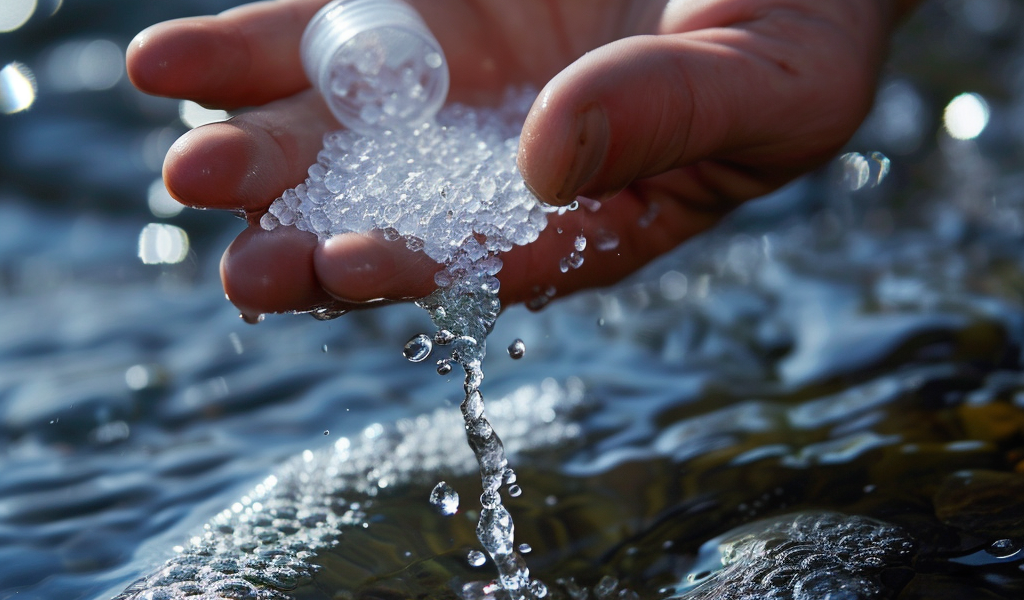University of Kentucky Researchers Develop Innovative Solution to Combat Plastic Pollution
Plastic pollution is a pressing environmental issue that has garnered significant attention in recent years. Researchers at the University of Kentucky Martin-Gatton College of Agriculture, Food and Environment have taken a pioneering step towards addressing this problem with an innovative solution.
The college’s Department of Biosystems and Agricultural Engineering (BAE) collaborated with the U.K. Department of Chemical and Materials Engineering to combat the presence of tiny, often invisible, plastic particles in the world’s oceans. Their groundbreaking research, published in Scientific Reports, focuses on the use of natural deep eutectic solvents (NADES) to capture and remove these miniature particles from water.
Jian Shi, an associate professor at BAE, emphasized the growing concern surrounding micro- and nano-plastics in the environment. These minute particles, resulting from the breakdown of larger plastic pieces due to sunlight and physical stress, pose a significant challenge due to their size, making conventional removal methods like centrifugation or filtration inefficient or costly.
Plastic, known for its durability and affordability, has become ubiquitous in daily life. However, its resilience also contributes to its environmental impact, as it does not easily degrade, leading to extensive waste accumulation. Over time, these plastics fragment into smaller pieces, with nano-plastics being so minuscule that they require a microscope to be observed. Their tiny size poses a substantial threat as they can be ingested by marine life and enter the human food chain.
Czarena Crofcheck, a BAE professor and co-author of the study, likened NADES to a ‘magnet’ that selectively attracts and retains these small plastic pieces. Essentially, the NADES mix with water and adhere to the plastics, effectively extracting them from the water.
The research presents a significant advancement in the ongoing battle against plastic pollution, offering a promising eco-friendly approach to addressing the pervasive issue of microplastics in aquatic environments.
For more information, the full research article can be accessed in Scientific Reports (2023) under DOI: 10.1038/s41598-023-37490-6.





